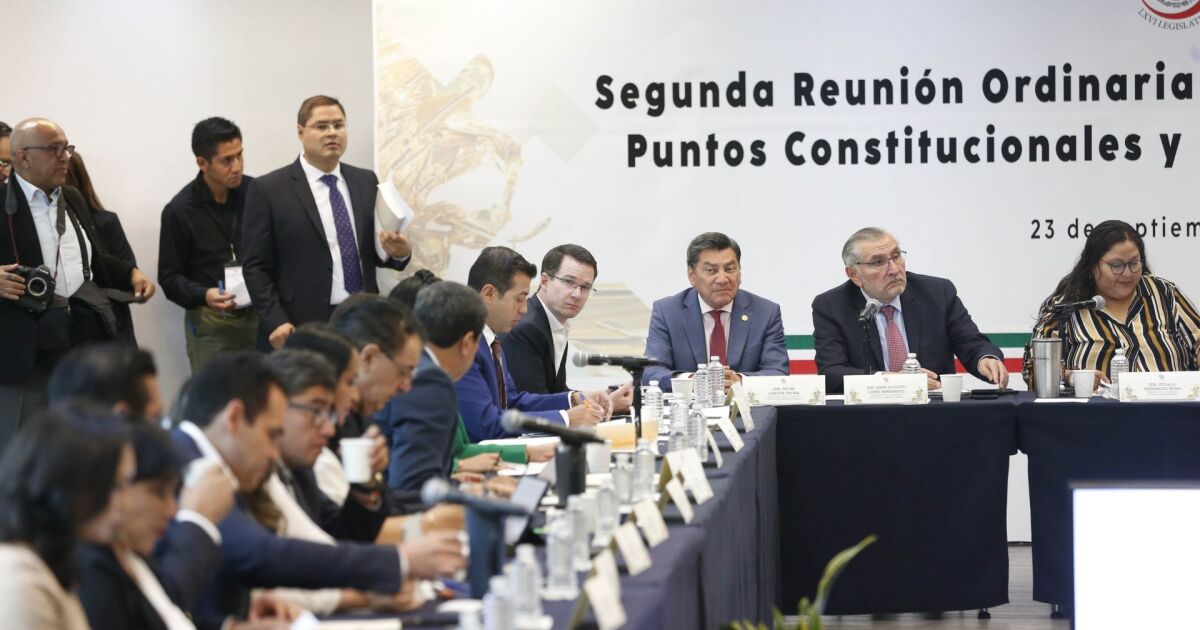During the discussion, both PAN and Morena legislators confronted each other, as the former rejected the sending of the National Guard to the Sedena, since they asserted that this would “militarize the country,” so they asked for there to be a civil police force in the three levels of government to combat insecurity.
“The problem is that the Army is the first responder, when the first responder should be a civil police force and not a military one. In any case, the accompaniment of our Armed Forces has to be until the last moment, because what is being done is squandering the good reputation that the Armed Forces have and exposing them to corruption and complicity,” said PAN member Marko Cortés.
Morena member Andrea Chávez mentioned, sarcastically, that “policemen who are so good on the street and honest, like Genaro García Luna, Luis Cárdenas Palomino, Facundo Rosas, Iván Reyes Arzate,” former police commanders who have been accused of various crimes.
Senator Luis Donaldo Colosio Riojas said that this reform would institutionalize the use of military force in times of peace, which is contrary, he said, to national and international human rights principles that require that public security be guaranteed by civilian forces.
“Allowing greater participation or interference by the armed forces, in this case the National Guard, which is already 100% militarized, in public security tasks in times of peace makes the temporary militarization of functions that should be under civilian control permanent, regulates militarism, and goes against international principles,” he said.
What does the reform consist of?
The ruling reforms articles 13, 16, 21, 32, 55, 73, 76, 78, 82, 89, 123 and 129 of the Political Constitution, changes that seek to make the National Guard part of the Sedena.
These changes indicate that the Federation will have a National Guard, which will be made up of personnel of military origin and with police training, and will depend on the Sedena to execute the National Public Security Strategy.
In addition, the budgetary and financial resources corresponding to cover the operating expenses of the National Guard and the material resources destined for its operation will be transferred to the Sedena, and it establishes that it will be the President of the Republic who appoints the commander of the National Guard, but at the proposal of the head of the Army.
It also states that the investigation of crimes will be the responsibility of the Public Prosecutor’s Office, the police and the National Guard.
Meanwhile, personnel from the defunct Federal Police will cease to provide their services to the National Guard and will be assigned to the Ministry of Security, while retaining their acquired labor rights.
The reform will enter into force the day after its publication in the Official Gazette of the Federation, and the Congress of the Union will have 180 days to harmonize the legal framework in this matter, that is, to issue secondary laws related to the National Guard.
This constitutional amendment was presented by President Andrés Manuel López Obrador on February 5 after the Supreme Court of Justice of the Nation (SCJN) invalidated the secondary reforms – endorsed by Morena – that transferred operational and administrative control of the National Guard to the Sedena in April 2023.














